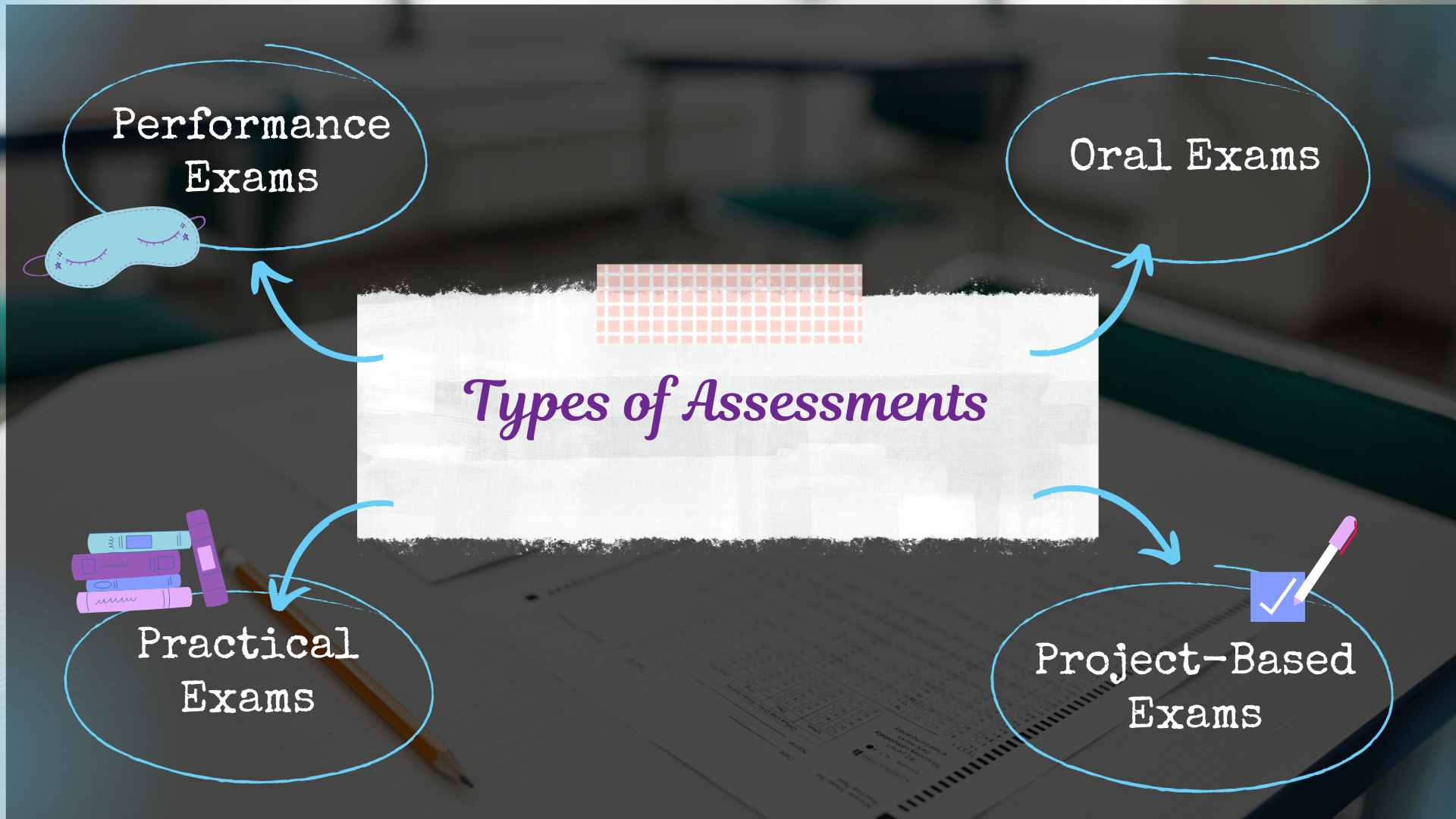Exams are an essential part of the educational process. They allow students to demonstrate their knowledge and skills, and they provide teachers with a way to assess student progress and understanding. However, not all exams are created equal. There are different types of exams, each with their own strengths and weaknesses. In this article, we will explore the different types of exams and provide samples of each.
Multiple-Choice Exams
Multiple-choice exams are a common type of exam in which students are asked to select the correct answer from a list of choices. Multiple-choice exams are easy to grade and can be used to assess a wide range of knowledge and skills. However, they can also be limiting in that they do not allow for open-ended responses or creative thinking.
Sample Question: Which of the following is not a type of renewable energy?
a) Solar energy
b) Wind energy
c) Nuclear energy
d) Hydroelectric energy
Essay Exams
Essay exams require students to write a response to a question or prompt. Essay exams can be used to assess critical thinking, problem-solving, and writing skills. However, they can also be time-consuming to grade and may not be well-suited to assessing factual knowledge or memorization.
Sample Question: Describe the causes and consequences of the oil discovery.
Short-Answer Exams
Short-answer exams require students to provide a brief response to a question or prompt. Short-answer exams can be used to assess knowledge and understanding of specific concepts or facts. However, they can also be limiting in that they do not allow for detailed or nuanced responses.
Sample Question: What is the capital of Egypt?
Open-Book Exams
Open-book exams allow students to refer to their textbooks, notes, or other resources during the exam. Open-book exams can be useful for assessing students' ability to apply knowledge and problem-solve. However, they can also be time-consuming to grade and may not be well-suited to assessing recall of specific facts or concepts.
Sample Question: Using your textbook and notes, explain the process of photosynthesis.
Performance Exams
Performance exams require students to demonstrate a specific skill or ability. Performance exams can be used to assess skills such as public speaking, artistic expression, or laboratory techniques. However, they can be challenging to design and administer, and may not be well-suited to assessing knowledge or understanding.
Sample Question: Perform a monologue from a Shakespearean play.
Project-Based Exams
Project-based exams require students to complete a project or assignment that demonstrates their understanding of a particular concept or skill. Project-based exams can be useful for assessing creativity, problem-solving, and collaboration. However, they can be time-consuming to design and grade, and may not be well-suited to assessing recall of specific facts or concepts.
Sample Question: Design and build a model of a sustainable house.
Oral Exams
Oral exams require students to answer questions or discuss topics in a verbal format. Oral exams can be useful for assessing communication skills, critical thinking, and problem-solving. However, they can be challenging to design and administer, and may not be well-suited to assessing factual knowledge or recall.
Sample Question: Discuss the causes and consequences of the Civil War.
Practical Exams
Practical exams require students to demonstrate specific skills or techniques. Practical exams can be useful for assessing skills such as laboratory techniques, clinical skills, or mechanical skills. However, they can be challenging to design and administer, and may not be well-suited to assessing knowledge or understanding.
Sample Question: Perform a basic electrical repair on a household appliance.
In conclusion, there are many different types of exams, each with their own strengths and weaknesses. The key is to choose the right type of exam for the specific




